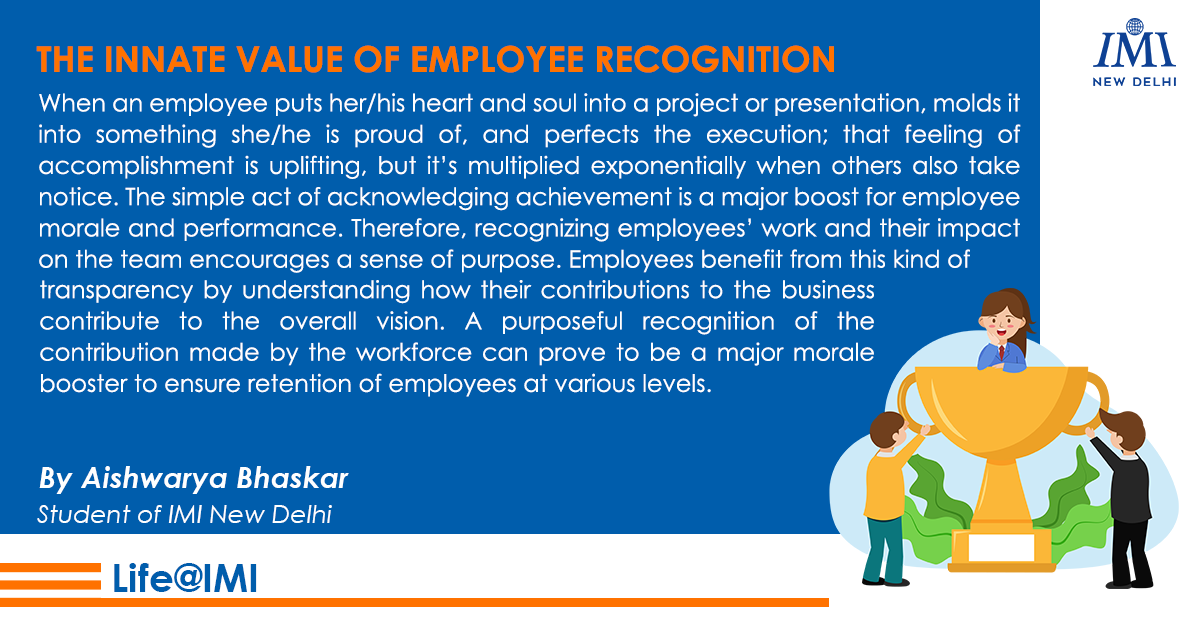“If satisfied employees are productive at an index level of 100, then engaged employees to produce at 144, nearly half again as much. But then comes the real kicker: inspired employees score 225 on this scale. From a purely quantitative perspective, in other words, it would take two and a quarter satisfied employees to generate the same output as one inspired employee.”Eric Garton and Michael Mankins, Harvard Business Review – Eric Garton and Michael Mankins, Harvard Business Review
As a result of the brain drain, the most critical challenge facing firms today is retaining brilliant employees. Talent has emerged as the most important factor in corporate success. The majority of employees quit owing to a lack of professional difficulties, opportunities for career growth and development, and little or no recognition.
Just the expense of hiring a new employee mounts up between creating and advertising a job description, screening and interviewing potential employees, negotiating relocation benefits, and providing referral or signing bonuses. It’s crucial to keep in mind that a lion’s share of the cost related to turnover is concealed, much like an iceberg. Lower morale lost institutional knowledge, and decreased production are some indirect costs of staff turnover. When one employee departs, their team must take on more work, which harms the workplace culture by creating disgruntled team members who are less productive. Even after an individual has been employed by an organization to fill an available position, they still need to be trained and oriented. While it is always thrilling to welcome a new team member, it is crucial to remember that productivity may initially decline after the addition of a new team member before rising.
Great scholars and thinkers such as Abraham Maslow, Frederick Herzberg, Daniel Pink, and Victor Vroom have made the case for recognition. Organizations such as Cisco and Zappos have brought in a revolutionary change with their comprehensive and well-envisioned recognition programs. When employees feel empowered, they work more effectively. They also actively aspire to go above and beyond and are more likely to concentrate on intrinsic factors like long-term objectives and personal development. This is especially important as organizations expand or evolve.
- Employee Recognition Decreases Employee Turnover– One of the most serious issues confronting organizations throughout the world is employee turnover. There aren’t enough possibilities for learning and growth. Simply put, one of the reasons people leave positions is if they believe their efforts are not appreciated by their colleagues or supervisors, and they do not see themselves progressing in their current position. Given the high cost of staff turnover, investing in employee recognition is a pertinent decision. It will also assist in the development of the desired company culture in which employees will want to stay.
- Employee Recognition Improves Employee Wellbeing and Company Culture- Work in the corporate is frequently seen as highly demanding, and organizations have a reputation for excessive overtime and a lack of work-life balance. However, promoting a better lifestyle and including wellness programs in recognition campaigns are both viable options. Employees will be able to unwind in their spare time while also being more productive at work. It will also aid in the management of growing healthcare expenditures that employers all over the world are experiencing. Furthermore, employee recognition can aid in the development of positive connections among employees, particularly if a peer-to-peer recognition program is implemented.
- Employee Recognition Boosts Employee Motivation and Productivity- The concept of productivity is simple and unambiguous: people perform their best and are most productive when they are acknowledged and engaged. Superior talent, according to McKinsey, is up to eight times more productive than typical staff. As a result, rewarding staff for their efforts can help organizations gain the rewards of their enhanced production.
- Employee Recognition Helps With Employee Development- Companies should spend not just on training, but also on learning by promoting good skills, activities, and behavior that align with the company’s goal. Employees’ learning curves, which are linked to their growth, are dependent on such assistance. Employee recognition is critical for employee growth for this reason. It makes the staff feel valued and safe, while also boosting their self-confidence.
The majority of businesses without official recognition programs already invest in recognition. For managers or HR staff, managing this form of recognition can be time-consuming because it is often erratic. Engagement, turnover, productivity, morale, and purpose are just a few of the areas of a business that can be affected by a well-implemented employee recognition program. An absence of an employee recognition program, or one that is ambiguous or poorly implemented, can demotivate workers and even drive away competent ones.
Whereas the fundamental premise for recognition shall never change, the ‘how’ of recognition has experienced a pivotal transition in recent years. This can be explained by the fact that business operations are transforming, especially in light of the talent market’s stiff competition, which has forced firms to abandon traditionalism and adopt a dynamic, modern strategy for conducting business. In this context, a vital step that firms must take to keep up with current trends is to reinvent the traditional employee rewards and recognition programs.
Peer-to-peer recognition- All too often, recognition comes in the form of a boss, acknowledging a subordinate. While this is a critical and valuable form of recognition, it is a one-off transaction. Peer-to-peer recognition, on the other hand, is not only motivating to employees, it reinforces a culture of support, collaboration, and achievement. It’s also scalable, authentic, and immediate. The tiniest of actions that might have otherwise gone unseen are now duly recognized and rewarded.
Experiential rewards- Research has shown that employees prefer experience over material gifts when being rewarded at work. The employees, thus, do not wish to receive any kind of merchandise or cash from their organization; rather they wish for opportunities for exploring new activities that are memorable and drive enjoyment.
Customization- The functions and employees of every organization are distinct in many ways. Employee motivation in one organization could not be effective in another. One size does not necessarily fit all, and the same is true of recognition initiatives. Employees, too, have many languages of appreciation. What might be meaningful for one might not hold the same value for another. Many businesses are accommodating in that they let staff provide various rewards to people. This makes it possible to be more thoughtful and to tailor rewards to fit individuals.
Senior Management Commitment- Executives frequently have more power than they realize, and the symbolic cues they transmit through the reward of excellent behavior can have a profound effect on staff. Real momentum is created by executives who take the time to acknowledge an individual or a team. Additionally, the executives must justify their recognition of those individuals—or, to put it another way, preach what they do. Employees frequently misread executive behavior but can be very quick to attribute reasons to it. An executive has a wonderful opportunity to impart the company’s principles when they take the time to thank people for doing appropriately.
Employee recognition given at the moment has the greatest potential for impact because the action is rewarded almost immediately when it’s top of mind. When someone is recognized for their unique contributions to the team or organization—especially when it is done in ways they prefer—it validates them, demonstrates that they belong, and helps them connect with that sense of meaning. At the same time, one can positively impact the work environment, while making the world a better place.



Speak your mind